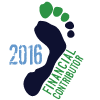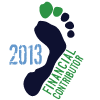You are using an out of date browser. It may not display this or other websites correctly.
You should upgrade or use an alternative browser.
You should upgrade or use an alternative browser.
My guess (aside from
My guess (aside from sponsorship), at fast pace, the risk of injury increases. Form must be perfect. Shoes are worn to allow for slightly less-than perfect form, thus giving a greater margin of error.
Shoes may increase the risk of repetitive use injuries, but they do decrease the risk of acute injury (puncture wounds, etc.)
For an elite, the risk/reward equation favors wearing shoes.
My guess (aside from sponsorship), at fast pace, the risk of injury increases. Form must be perfect. Shoes are worn to allow for slightly less-than perfect form, thus giving a greater margin of error.
Shoes may increase the risk of repetitive use injuries, but they do decrease the risk of acute injury (puncture wounds, etc.)
For an elite, the risk/reward equation favors wearing shoes.
Last Place Jason wrote:For an
After is all said and done, I think this is what it comes down to.
Last Place Jason said:For an elite, the risk/reward equation favors wearing shoes
After is all said and done, I think this is what it comes down to.
I would say risk of injury
I would say risk of injury and speed. The pace that elite runners run a marathon now, and it just keeps getting faster, there is no way they can achieve that pace barefoot. I would like to see it happen which would impress the heck of out of me, but I don't think it will happen.
I would say risk of injury and speed. The pace that elite runners run a marathon now, and it just keeps getting faster, there is no way they can achieve that pace barefoot. I would like to see it happen which would impress the heck of out of me, but I don't think it will happen.
here are my two cents worth
here are my two cents worth on the subject...
1. Money. Shoe deals are a big part of a pro runners income. They also cover training and living costs, which is a huge investment. Take a shoe deal away from an elite runner and his/her endorsement options are rather limited.
2. Transitioning. Now that your no longer on Team Nike, you have to rely on purse/appearence money. But, before you can attend any races, you've got to take a year, (or more if you have poor form...and alot of elite runners have horrible form) to learn a new way to run. Now your back to living in your parents basement and working a day job to pay for your running shorts just like the rest of us.
3. Training. Two factors limit my training. The first is time. Elite runners don't have this issue, as running is their job. The second is the condition of my feet. I hate taking days off from running in the summer. When I ran shod, I would run 7 to 10 days, many times twice a day, without taking a day off. Now, after 3 days of long runs, my feet are bruised, stiff, and just plain tired, so I'll take a rest day and then all will be good. It's so tempting on those days to grab my trusty Zooms, lace them up, and head out the door with total disrecuard for the sharp pebbles, pointy sticks and stray dog poop that my litter my path. Lets face it, running BF or minimalist is much harder than running shod. It requires more focus. At the pro leve, that focus must be put towards race strategy, scouting the competition, peaking at the right time, and a million other things that us recreational runners don't have to deal with.
Unless all pro runners were to switch to BF, then those that run bare would be at a disadvantage to those that run shod.
here are my two cents worth on the subject...
1. Money. Shoe deals are a big part of a pro runners income. They also cover training and living costs, which is a huge investment. Take a shoe deal away from an elite runner and his/her endorsement options are rather limited.
2. Transitioning. Now that your no longer on Team Nike, you have to rely on purse/appearence money. But, before you can attend any races, you've got to take a year, (or more if you have poor form...and alot of elite runners have horrible form) to learn a new way to run. Now your back to living in your parents basement and working a day job to pay for your running shorts just like the rest of us.
3. Training. Two factors limit my training. The first is time. Elite runners don't have this issue, as running is their job. The second is the condition of my feet. I hate taking days off from running in the summer. When I ran shod, I would run 7 to 10 days, many times twice a day, without taking a day off. Now, after 3 days of long runs, my feet are bruised, stiff, and just plain tired, so I'll take a rest day and then all will be good. It's so tempting on those days to grab my trusty Zooms, lace them up, and head out the door with total disrecuard for the sharp pebbles, pointy sticks and stray dog poop that my litter my path. Lets face it, running BF or minimalist is much harder than running shod. It requires more focus. At the pro leve, that focus must be put towards race strategy, scouting the competition, peaking at the right time, and a million other things that us recreational runners don't have to deal with.
Unless all pro runners were to switch to BF, then those that run bare would be at a disadvantage to those that run shod.
for what it's worth i ran
for what it's worth i ran and competed at a very high level back in the day. shoes were just what you wore. no one ever talked about trying to be a runner without them. yes we suffered repetitive use injuries and dealt with aches and pains but at the end of the day shoes were a part of running. like you need a ball to go bowling, you need shoes to run. we were all trained in shoes and we all raced in shoes. we focused on form and made sure that we did all we could to have as clean a stride as we could. the thought that shoes would allow me to not have perfect form never crossed my mind and i dont think any of the people i ran with or against thought so either.
yes sponsorship is a big deal but most athletes dont get money; i didnt but i did get free gear and some expenses covered which was nice. still i never thought of the shoes as something i could get rid of even if i was getting paid to wear them. you just never thought of running without shoes. that's why this whole barefoot thing is under so much scrutiny. the vast majority of runners today have always had shoes and no one told them to do anything different. in fact we're told you have to have them. back then we didnt have or worry about all this motion control stuff and most of my running shoes werent very thick soled so that aspect was different than today's top level runners.
i did however come across an olympic team coach who told me i needed to do drills and short runs barefoot at least once a week to keep my feet strong because shoes are too cushiony and they weaken feet. i took that advice to heart and it made me a better runner. most elites will do something along those lines even if they dont want to admit it and look like a fad follower or get questioned about it a lot. even nike has their top team doing barefoot training, not running workouts, but strength, agility, and some speed training barefoot. it's usually on grass fields but it's been a tool for the big boys for a very long time.
for what it's worth i ran and competed at a very high level back in the day. shoes were just what you wore. no one ever talked about trying to be a runner without them. yes we suffered repetitive use injuries and dealt with aches and pains but at the end of the day shoes were a part of running. like you need a ball to go bowling, you need shoes to run. we were all trained in shoes and we all raced in shoes. we focused on form and made sure that we did all we could to have as clean a stride as we could. the thought that shoes would allow me to not have perfect form never crossed my mind and i dont think any of the people i ran with or against thought so either.
yes sponsorship is a big deal but most athletes dont get money; i didnt but i did get free gear and some expenses covered which was nice. still i never thought of the shoes as something i could get rid of even if i was getting paid to wear them. you just never thought of running without shoes. that's why this whole barefoot thing is under so much scrutiny. the vast majority of runners today have always had shoes and no one told them to do anything different. in fact we're told you have to have them. back then we didnt have or worry about all this motion control stuff and most of my running shoes werent very thick soled so that aspect was different than today's top level runners.
i did however come across an olympic team coach who told me i needed to do drills and short runs barefoot at least once a week to keep my feet strong because shoes are too cushiony and they weaken feet. i took that advice to heart and it made me a better runner. most elites will do something along those lines even if they dont want to admit it and look like a fad follower or get questioned about it a lot. even nike has their top team doing barefoot training, not running workouts, but strength, agility, and some speed training barefoot. it's usually on grass fields but it's been a tool for the big boys for a very long time.
I've been reading here and
I've been reading here and there that a lot of these elite runners incorporate barefoot running into their training programs to strengthen their feet and bioperception. I wish we had the details though, i.e., who, how often, how far, etc.
I've been reading here and there that a lot of these elite runners incorporate barefoot running into their training programs to strengthen their feet and bioperception. I wish we had the details though, i.e., who, how often, how far, etc.
In a faster-paced race, say
In a faster-paced race, say anything up to a marathon, shoes are faster and I think they always will be. Racing shoes are engineered to do just that and, even though we may gripe about the effect of shoes in general, that's one aspect where the manufacturers know what they're doing.
But I bet the numbers of elites who incorporate BF into their training is going to be increasing, and I expect to see less cushioning in racing shoes over time.
In a faster-paced race, say anything up to a marathon, shoes are faster and I think they always will be. Racing shoes are engineered to do just that and, even though we may gripe about the effect of shoes in general, that's one aspect where the manufacturers know what they're doing.
But I bet the numbers of elites who incorporate BF into their training is going to be increasing, and I expect to see less cushioning in racing shoes over time.
BFWendyBird
Chapter Presidents
I'm with all the folks
I'm with all the folks about focus and injury prevention. My worst blood blisters and bruises ever were from 5K races and getting distracted so that I didn't see the rock or whatever in my path. I have a hard time focusing in a crowd and my form deteriorates. I race barefoot as often as possible, but unless I know the path is good, I'll opt for VFFs or huaraches. Having something covering the feet would give a professional runner one less thing to think about on race day.
I'm with all the folks about focus and injury prevention. My worst blood blisters and bruises ever were from 5K races and getting distracted so that I didn't see the rock or whatever in my path. I have a hard time focusing in a crowd and my form deteriorates. I race barefoot as often as possible, but unless I know the path is good, I'll opt for VFFs or huaraches. Having something covering the feet would give a professional runner one less thing to think about on race day.
In the ultra world,
In the ultra world, minimalist shoes are quite popular. There are a few dudes that are winning races in minimal shoes, but still do a significant amount of barefoot training. We all know of Kripcka, but Jeff Browning is another. Our own Zeke is pretty damn fast. Jeremiah Cataldo, an ultraruner from Grand Rapids, won a 50 miler in NB MT100's this weekend. Jesse Scott and james Webber are putting up very impressive times, both barefoot and in VFFs or other minimal shoes.
In the ultra world, minimalist shoes are quite popular. There are a few dudes that are winning races in minimal shoes, but still do a significant amount of barefoot training. We all know of Kripcka, but Jeff Browning is another. Our own Zeke is pretty damn fast. Jeremiah Cataldo, an ultraruner from Grand Rapids, won a 50 miler in NB MT100's this weekend. Jesse Scott and james Webber are putting up very impressive times, both barefoot and in VFFs or other minimal shoes.


















